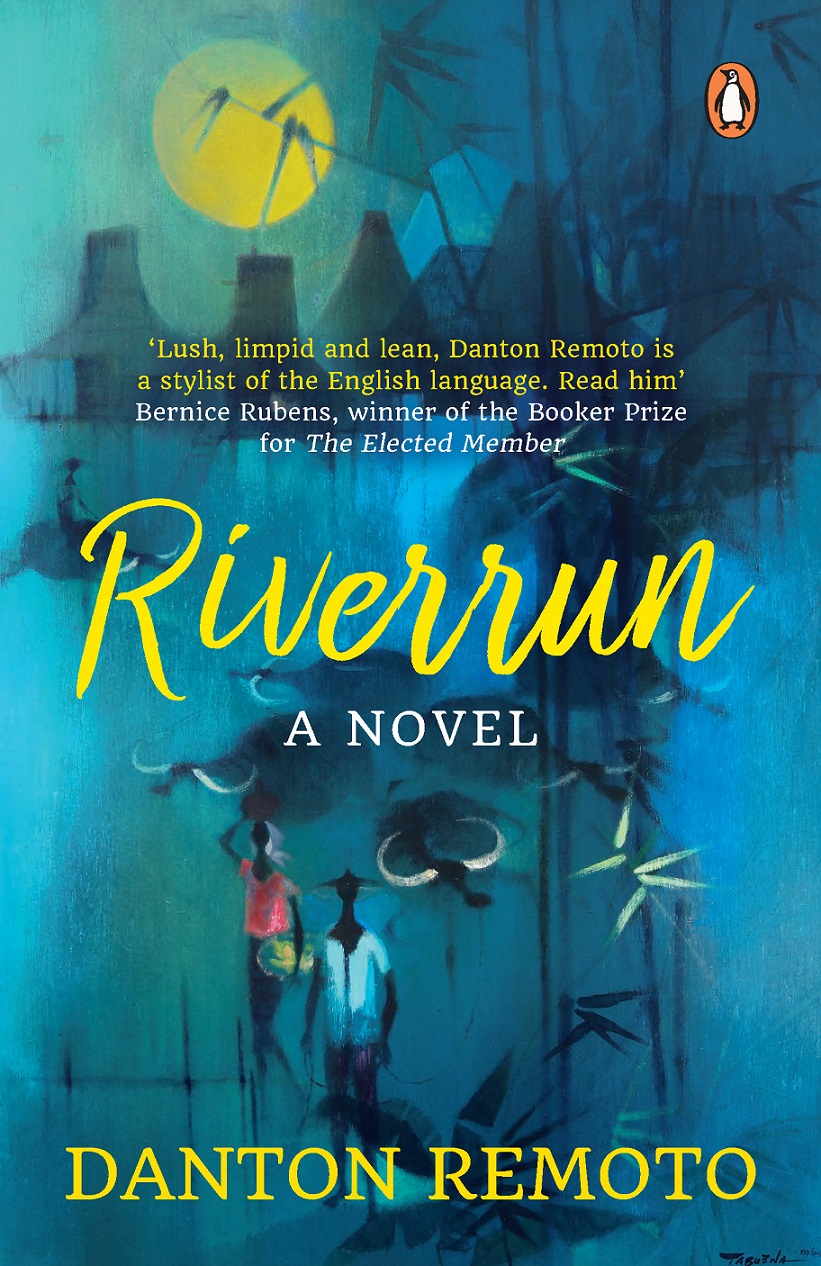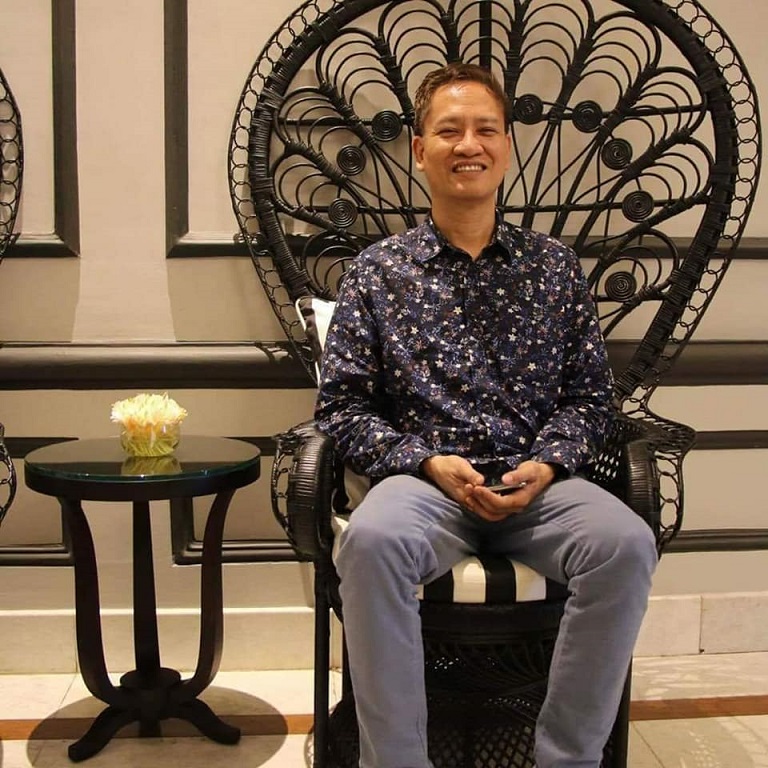
Book cover of “Riverrun.”
Reading Danton Remote’s “Riverrun” during the lockdown is an exercise in reviewing national consciousness.
Set in the 60s to the 70s and the 80s, the 205-page book brings the reader to those decades as seen in the eyes of a Bicolano youth who grew up in Pampanga and later settled in Manila to study.
The last chapters are set in the United Kingdom and here we see the character evolve from the honor student provinciano to a curious student in a foreign country. When you get to the last chapters, you see a singular character coming to terms with himself and his past including his sexuality.
The first few chapters exude the innocence of the 60s, the turbulent 70s and his journey to adulthood in the 80s.
The novel is at once an overpowering journey to national consciousness in the 70s and the 80s. It has a singular voice that makes the journey so intimate you can relate to the personal side and at the same time get a run-through of why those decades were unforgettable to the Filipino.
The first few chapters reveal childhood unfolding with soulful vignettes of father and mother of different occupations. She was a teacher who loves music and he was a soldier whose life revolves around military discipline.
Under such parents of contrasting backgrounds, Remoto carves the main character’s sensibility in his journey from childhood to adulthood.
The author’s highly lyrical prose is a primary asset of the book and it carries the reader to several chapters of her personal journey from Albay to Basa Air Base in Pampanga to Manila and Antipolo and later, UK.

Author Danton Remoto.
The first few chapters echo the main character’s irascible and impulsive self. He remembers the first lashes of discipline from his father’s belt and his grandmother who smelt of white flower.
The book has a chapter on the day the family acquired a second-hand upright piano with the character constantly coping with rigid practice – “I would sit before this piano, required to practice three times a day by my teacher, who also happened to be my mother. ‘But it’s summer!’ I wanted to protest. The dragonflies were hovering over the stream behind our house, their bodies the colour of amber and fire. Our home-made kites were waiting to be flown in the clear, blue sky. The fruit trees were waiting in the orchard— mangoes, guavas, aratiles, duhat—the fruits ripened by the sun, waiting for our young and greedy hands. But I had to stay at home and play the piano! Sometimes, I would just sit in my room and sulk. But Papa would not let my sulking pass and he would make me sit before the piano. Then, he would install himself on the perezosa and listen.”
Earlier published by Anvil in 2015, the Penguin edition is a lot different.
For one, the international edition is longer with chapters set in London and Scotland. It has more intimate scenes upon suggestion of the Penguin editor.
Revealed Remoto: “The editor wondered why the main character is full of yearning but the sex is unconsummated, or there is no attempt to initiate it or take part in it. I explained to her that the setting is 1970s-1980s Philippines, a deeply Catholic and conservative society where gay sex and relationships were frowned upon. Editor said: ‘All right, but adding at least two sex scenes would be good for the novel.’ So, I retrieved a lyrical short story that I had written set in a gay bar in Scotland and revised it for this novel. I also wrote a satire on sex, which follows the chapter on the gay bar in Scotland. I called this sardonic chapter ‘Fear of Flying’ after the best-selling erotic book of Erica Jong published in 1973.”
The author explains the sad hilarity of the characters in his novel.
Remoto points out that his parents were from Oas, Albay and that strong typhoons cross the regions every year on top of occasional volcanic eruptions. “They come every year, like recurring nightmares. But my parents, my relatives and friends, the people I grew up with, they just shrugged off these events and continued with life after the calamity has passed. They planted rice again, or rebuilt the house, started another small business, all the while cracking jokes and exchanging witticisms, poking fun at their situation and the calamity or the politician who has caused them to suffer. Life goes on.”
“Riverrun” is a moving coming-of-age story with some passage that feels like déjà vu.
In the last chapter, Remoto sums up the qualities of his beautiful country still “governed by crocodiles and vipers.”
The book has a haunting finale as he pines for the “many stories that still need to be told” with more images flowing from the very heart of his memory.
Back in his home grounds, the main character reflects: “As I stood there in our backyard, between our lighted house and the darkness beyond, there was neither sadness nor fear, only the humming of the cicadas, a humming so clear and alive.”
(Print and e-book editions of “Riverrun” can be ordered at www.acrephils.com at P690 per copy. Will be made available at Fully Booked and National Book Store. Danton Remoto has degrees from Ateneo de Manila University and the University of Stirling [British Council Scholar]. He also took postgraduate studies in Literature at Rutgers University on a Fulbright Scholarship. He has taught at universities in the United States, the Philippines and Malaysia. His last post was as Head of School at the University of Nottingham in Malaysia.)
